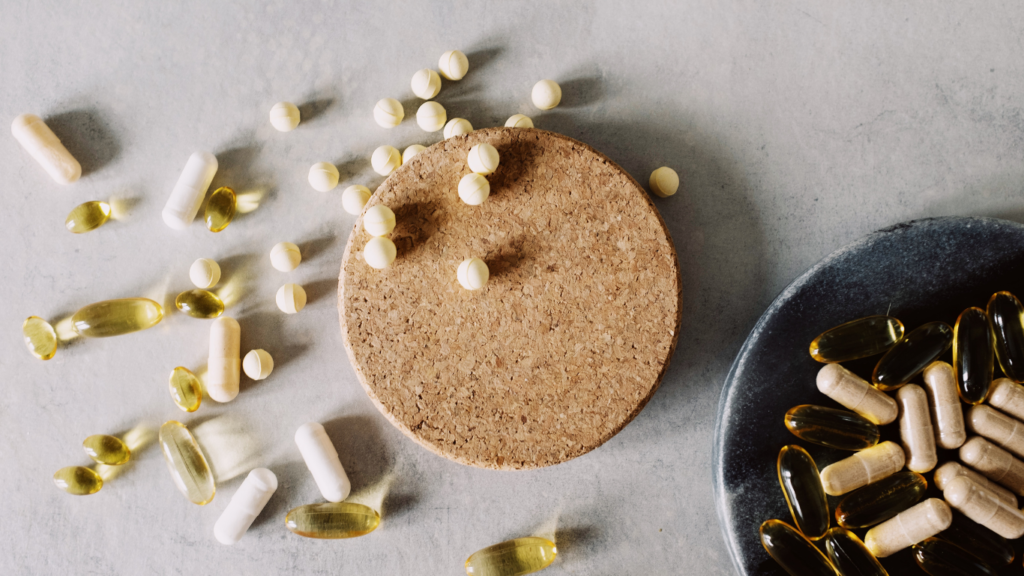Stamina or energy levels can decrease with age for a variety of reasons. Your metabolism tends to slow down as you age. This means your body burns calories at a slower rate, which can lead to feelings of fatigue and reduced energy. Age-related muscle loss occurs in the body, known as sarcopenia. With less muscle mass, daily activities can become more tiring and energy-demanding. Menopause in women and andropause in men can lead to hormonal imbalances that affect energy levels. Changes in estrogen and testosterone levels can contribute to fatigue.
Apart from these sleep issues, medical problems and their medication, nutritional deficiencies and cognitive changes that come with age can all make you feel exhausted easily. Staying physically active and maintaining good stamina in old age is important for overall health and quality of life. While genetics and age-related changes can affect stamina to some extent, making positive changes to your diet can still have a significant impact. Here are some dietary tips to help improve stamina after the age of 60 :
- Balanced Diet: Consume a well-balanced diet that includes a variety of foods from all food groups, including fruits, vegetables, lean proteins, whole grains, and healthy fats. This provides the necessary nutrients for energy and overall health. Try to add diverse whole grains, vegetables, and fruits of various colors to your diet to have the best nutrition. Keep your diet good in fiber to help the digestive system.
- Hydration: Staying hydrated is essential for maintaining stamina. Dehydration can lead to issues like fatigue, urinary tract infections, and kidney problems. Drink adequate water throughout the day and have water-rich foods like fruits and vegetables.
- Complex Carbohydrates: Incorporate complex carbohydrates into your diet, such as whole grains (quinoa, whole wheat atta, millets), as they provide a steady source of energy. Avoid excessive consumption of simple sugars, which can lead to energy crashes.
- Lean Proteins: You may include lean sources of protein like poultry, fish, beans, and tofu in your diet. Although a plant-based diet is easy on the system and best for the elderly, you may include some eggs, chicken, and fish in your diet if your body allows it. Protein helps repair and build muscle, which is important for stamina and strength.
- Omega-3 Fatty Acids: Foods rich in omega-3 fatty acids, such as fatty fish (salmon, mackerel, sardines), flaxseeds, and walnuts, can help reduce inflammation and improve cardiovascular health, which can enhance stamina.
- Antioxidants: Antioxidants help combat oxidative stress and may improve endurance. Eat fresh foods high in antioxidants, like berries, citrus fruits, and dark leafy greens. There is no need for imported and expensive fruits. Seasonal fruits are the best bet when it comes to antioxidants for example oranges in winter and nimbu pani in summer are both high in antioxidants and pocket-friendly. Processing and long-term storage have a negative impact on nutritive value, so always prefer fresh, local, and seasonal.
- Iron-rich foods: Iron is important for carrying oxygen to your muscles. Include iron-rich foods like leafy greens in your diet.
- Vitamin B12: Vitamin B12 is essential for energy metabolism. As people age, their ability to absorb B12 from food may decrease. Consider B12 supplements or fortified foods if needed.
- Portion Control: Be mindful of portion sizes to avoid overeating, which can lead to feelings of sluggishness and reduced stamina.
- Snacking: Have healthy snacks like nuts, yogurt, or fruit on hand for a quick energy boost, especially if you have a long day ahead. Soaked nuts are best for nutrition and digestion. You can grind and add to different foods if they are hard for you to eat otherwise.
- Probiotics: These can be particularly beneficial for the elderly population. As people age, their digestive systems may become less efficient, leading to digestive issues and nutrient absorption problems. Probiotics, which are live beneficial microorganisms, can help restore a healthy balance of gut bacteria, promoting better digestion and nutrient uptake. This not only supports overall digestive health but can also indirectly contribute to increased energy levels by ensuring that essential nutrients are absorbed effectively.
Additionally, probiotics may bolster the elderly person’s immune system, reducing the risk of infections and illnesses that can drain their energy. So, do not forget your daily dose of dahi, chhacch, and other fermented foods loke kanji, pickles, etc.

- Nutritional supplements: Nutritional supplements can play a valuable role in supporting the health and well-being of the elderly population. As individuals age, their nutritional needs may change due to factors such as reduced appetite, diminished absorption of certain nutrients, and increased susceptibility to chronic health conditions. In such cases, nutritional supplements can be essential to bridge the gap between dietary intake and the necessary nutrients seniors require.
One common concern among the elderly is the risk of nutrient deficiencies, particularly in vitamins like B12, D, and calcium, which are crucial for bone health and overall vitality. Supplements can help address these deficiencies, reducing the risk of related health issues like osteoporosis or anemia.
Moreover, older adults may face challenges in maintaining a balanced diet due to factors like dental problems, medication interactions, or limited access to fresh, nutritious foods. In such instances, supplements can provide a convenient and reliable source of essential nutrients, helping to maintain their overall health.
However, it is essential to note that while nutritional supplements can be beneficial, they should not replace a varied and well-balanced diet.
Avoid Excessive Alcohol and Caffeine: Limit alcohol and caffeine consumption. Though some red wine occasionally and tea or coffee once or twice a day is ok, excess can cause adverse health effects in old age. Both alcohol and caffeine can potentially interact with medications commonly prescribed to older adults, affecting their efficacy, or causing adverse side effects. They can disrupt sleep patterns and negatively affect stamina and energy levels.
Above everything, it is extremely important to listen to your body. Foods that you could easily eat at a youthful age may no longer suit you in old age. Observe if certain foods are bogging you down. Avoid them and find alternatives. Along with diet, it is also essential to incorporate some physical activity in your routine along with good restful sleep and sound mental health to have a rocking stamina even after 60 years of age.
